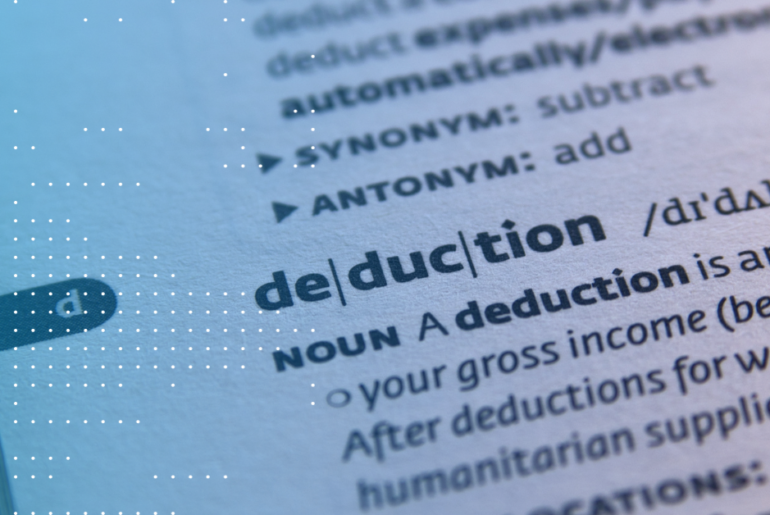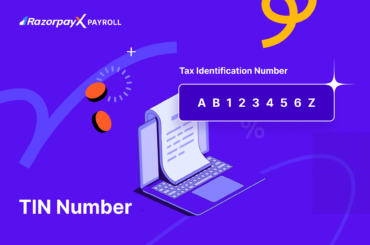Deductions under Section 80 of the Income Tax Act allow taxpayers to reduce their taxable income. These deductions can be claimed only if tax-saving investments are made, or eligible expenses are incurred.
Table of Contents
Section 80C – The most popular deduction among individuals
The most popular deduction used by salaried individuals is Section 80C (a part of Section 80). It provides a deduction benefit of up to Rs 1.5 lakh from taxable income under this section.
Section 80C is only applicable to individuals and HUFs. No corporates, partnership firms, LLPs can avail tax benefit under this section.
Investments eligible for Section 80C deduction
[bctt tweet=”Investments made towards Provident Fund Scheme (EPF & PPF), National Saving Certificates (NSCs), Sukanya Samriddhi Yojana (SSY), National Pension Scheme (NPS), etc. are eligible for Section 80C deduction. ” via=”no”]
Here’s a quick table to compare different schemes and make the right investment choice.
| Investment options | Interest | Minimum lock-in period | Guaranteed return |
| Equity Linked Saving Scheme (ELSS) | 12% to 15% (depending on market) | 3 years | No |
| National Pension Scheme (NPS) | 8% to 10% | Until the investor reaches 60 years of age (retirement) | No |
| Senior Citizen Savings Scheme (SCSS) | 8.60% | 5 years | Yes |
| Public Provident Fund (PPF) | 7.90% | 15 years | Yes |
| National Saving Certificates (NSCs) | 7.9% | 5 years | Yes |
| ULIP | 8% to 10% (depending on market) | 5 years | No |
| 5 year Fixed deposit | Up to 8.40% | 5 years | Yes |
| Sukanya Samriddhi Yojana (SSY) | 8.50% | 8 years | Yes |
There are certain expenses that are eligible for deduction under section 80C.
- Life insurance premium – Premium paid towards life insurance policies is eligible for deduction under Section 80C. The benefit is applicable to insurance policies of self, spouse and dependent children.
- Tuition fees – Tuition fees paid for the education of two children can be used for tax benefit under Section 80C. The fees should be for a full-time course, paid to any school, college, university or educational institute situated in India.
- Principal repayment towards home loan – Principal repayments made for housing loans can be claimed for deduction under section 80C. This deduction can be claimed for the house property only if the construction is completed. Also, the property should not be transferred or sold within 5 years of possession. Otherwise, the entire deduction will be taxable in the year of transfer or sale.
- Stamp duty and registration charges – The Income Tax Act allows individuals to get a deduction for stamp duty and registration charges paid towards house possession. These amounts can only be claimed after the actual payment is made. Otherwise, it will not be eligible for Section 80C deduction.
The maximum deduction under Section 80C should not exceed Rs 1.5 lakh in a financial year.
Section 80CCD – Deduction for pension contributions
Another part of Section 80 is Section 80CCD that is divided into 3 sub-sections.
Section 80CCD(1) – Employee’s contribution
A salaried individual can claim a deduction of 10% of their salary for the self contribution made to their pension accounts. However, the maximum benefit shall not exceed Rs 1.5 lakh.
Section 80CCD(1B) – Self-contribution to NPS
Suppose an individual has contributed to their NPS (National Pension Scheme) account. In that case, they can claim an additional deduction for up to Rs 50,000 in a financial year under section 80CCD(1B).
Section 80CCD(1B) deduction can be claimed on and above the limit of Rs 1.5 lakh under Section 80C & Section 80CCD(1). An individual can claim a maximum deduction of Rs 2 lakh by making contributions to pension schemes.
Section 80CCD(2) – Employer’s contribution to NPS
When an employer contributes to the employee’s NPS, the contribution amount is subject to tax deduction under section 80CCD(2). There is no threshold on the contribution amount. This deduction can be claimed in excess of Section 80CCD(1).
Section 80CCD(2) allows employees to claim deductions up to 10% of their salary (includes the basic pay and dearness allowance) or equal to the contributions made by the employer towards the NPS.
To claim these deductions, employees should provide proof of payment to their employer. If the investment declarations are not made to the employer, employees can claim these benefits while filing income tax returns.
Section 80D – Deduction for medical insurance premium paid
This section provides a tax deduction for health insurance premium paid by individuals.
An individual can claim a deduction of Rs 25,000 for the insurance premium paid for themselves, spouse, and dependent children.
They can claim an additional deduction for their parents’ health insurance up to Rs 25,000 if the parents are less than 60 years of age. For parents aged more than 60 years, the deduction benefit increases to Rs 50,000.
In case both individual and parents are 60 years or above, the maximum deduction available under this section is up to Rs 1 lakh.
Also, any payments made for preventive health checkups are eligible for deduction up to a maximum of Rs 5,000. This amount is included within the overall limit of Rs 25,000/Rs 50,000 depending on the case.
Section 80DD – Deduction for rehabilitation of handicapped dependent relative
This section allows a deduction to a resident individual or a Hindu Undivided Family (HUF) for the expenditure incurred on medical treatments (including nursing), training and rehabilitation of a handicapped dependent relative.
The deduction amount under section 80DD is
- Rs 75,000 where disability is 40% or more but less than 80%
- Rs 1,25,000 where there is a severe disability (disability is 80% or more)
Employees claiming this deduction should provide a certificate of disability from prescribed medical authority to their employers.
Make tax declaration easy with RazorpayX Payroll for employees
Upon making investments or incurring expenses under Section 80, employees should submit the respective proofs to their employers. This allows employers to deduct income tax (TDS) accordingly from employees’ salary.
With India’s best payroll software RazorpayX Payroll, the whole process of tax declaration becomes seamless. Employees can enter details and upload supporting documents on the portal within a few clicks.
Once they submit the proofs, RazorpayX Payroll calculates their tax liability under the dual tax regime and helps them choose the better-off tax regime.





